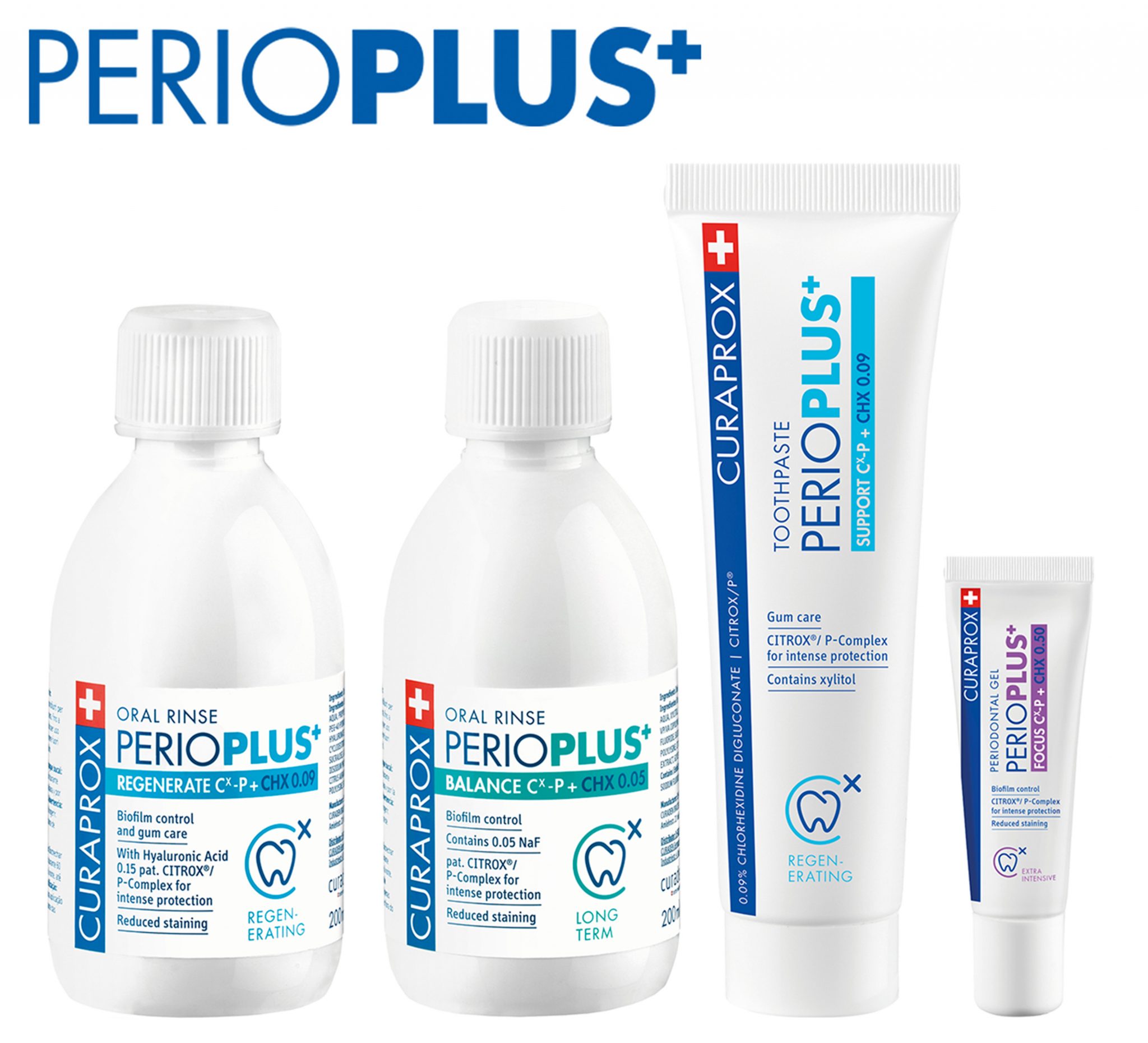The problem with rising allergy prevalence
Featured Products Promotional FeaturesPosted by: Dental Design 18th April 2021

It might surprise you to learn that Britain has some of the highest prevalence rates in the world for allergic conditions. Over 20% of the population is affected by one or more allergic disorders and the number of allergy sufferers in the UK is rising by 5% every year.[1], [2] The European Academy of Allergy and Clinical Immunology estimates that up to 20% of patients with allergies live with a severe, debilitating form of their condition, and struggle daily with the fear of a possible asthma attack, anaphylactic shock or even death resulting from an allergic reaction.[3]
Although allergies are extremely common, fully understanding them is a work in progress. What we do know is that allergies occur when the body’s immune system responds to a particular substance as though it is harmful, triggering a reaction that can range from repeated sneezing and itchy eyes, to a worsening of asthma or eczema symptoms. Most allergic reactions are mild and can be effectively managed by either avoiding the allergen that causes them whenever possible or taking medication that can help control symptoms, including antihistamines, decongestants, as well as lotions and creams – some of which contain steroids.
Occasionally, a severe allergic reaction known as anaphylaxis or anaphylactic shock can occur, which is classed as a medical emergency and requires urgent treatment.[4] The fact that just one allergy can pose a risk to life makes the continued rise in allergy sufferers all the more concerning, especially as more children than ever are being diagnosed with allergies – as are an increasing number of adults – to food that had previously been safe for them to eat. In England alone, hospital admissions for food allergy reactions increased by an alarming 57.6% between 2013 and 2019.[5] The consequences of failing to treat and/or manage an allergy effectively can be catastrophic, as we have seen in many recent and tragic stories of children dying from an allergic reaction to certain foods.
In 2016, the UK was shocked when 15-year-old Natasha Ednan-Laperouse died after suffering from a severe allergic reaction to a Pret a Manger baguette that contained sesame seeds, but was not labelled to indicate so.[6] The teenager’s death triggered a major shake-up in food safety regulations, whereby a new law – aptly named “Natasha’s Law” – was introduced that requires food businesses to include full ingredients labelling on pre-packed for direct sale foods. Natasha’s Law comes into force in October this year and is designed to protect allergy sufferers by enabling them to make safer choices when buying food.[7]
It is not yet clear why the body’s immune system can be so reactive to harmless substances, although affected individuals tend to have a family history of allergies or suffer from closely related conditions such as asthma or eczema.4 Furthermore, the many possible reasons for the rising prevalence of allergies over the past few decades remain hotly debated. The “hygiene hypothesis” is a popular theory that suggests our society’s focus on creating clean environments for children has led to a lack of exposure to various micro-organisms, which can impede the development of a child’s immune system.
Some research supports the hygiene hypothesis, including an interesting study that demonstrated children who grow up with pets like dogs and cats are at lower risk of developing allergies than those without pets.[8] Other studies suggest that a mother’s diet may influence their child’s likelihood of becoming allergic to specific substances. Researchers from Imperial College London recently found that when mothers took fish oil supplements during pregnancy in combination with breastfeeding, their children were 30% less likely to be allergic to eggs and 22% less likely to develop eczema. Although this study focused on specific allergies, it does highlight a potential link between prenatal diet and other allergies in children.[9]
 Given increasing allergy prevalence worldwide, the need for hypoallergenic solutions is greater than ever before. Dental professionals can support patients that suffer from allergies by recommending the use of oral healthcare products that contain hypoallergenic ingredients. For instance, the innovative, alcohol-free range of ‘Perio plus’ mouth rinses offer the benefits of natural ingredients such as Citrox®, which is a non-toxic, non-corrosive and hypoallergenic substance extracted from bitter oranges. Dental teams can recommend ‘Perio plus’ with complete peace-of-mind, knowing its unique formula is optimised to protect the teeth, gums and oral mucosa from plaque.
Given increasing allergy prevalence worldwide, the need for hypoallergenic solutions is greater than ever before. Dental professionals can support patients that suffer from allergies by recommending the use of oral healthcare products that contain hypoallergenic ingredients. For instance, the innovative, alcohol-free range of ‘Perio plus’ mouth rinses offer the benefits of natural ingredients such as Citrox®, which is a non-toxic, non-corrosive and hypoallergenic substance extracted from bitter oranges. Dental teams can recommend ‘Perio plus’ with complete peace-of-mind, knowing its unique formula is optimised to protect the teeth, gums and oral mucosa from plaque.
For many people, having an allergy can be frightening and restrictive, placing a heavy burden on everyday life. Fortunately, we are learning more and more about allergies as research progresses, which is helping to inform our understanding of how to treat them and prevent their development altogether. It is important that dentists and their teams encourage patients to get tested should they suspect they have an allergy. This is key to patients seeking the support they need in order to effectively manage and gain better control over their condition, thus ensuring they benefit from an improved quality of life.
For more information please call 01480 862084, email info@curaprox.co.uk or visit www.perioplus.com/uk
Author Dawn Woodward National Sales manager Curaprox UK
[1] Levy, M. L et al. (2004) Inadequacies in UK primary care allergy services: national survey of current provisions and perceptions of need. Journal of Clinical and Experimental Allergy. 34(4): 518–520. DOI: 10.1111/j.1365-2222.2004.1945.x.
[2] Natasha Allergy Research Foundation. (2019) The Allergy Explosion. Available at: https://www.narf.org.uk/the-allergy-explosion. [Last accessed: 22.01.21].
[3] European Academy of Allergy and Clinical Immunology. (2015) Advocacy Manifesto: Tackling the Allergy Crisis in Europe – Concerted Policy Action Needed. Available at: https://www.veroval.info/-/media/diagnostics/files/knowledge/eaaci_advocacy_manifesto.pdf. [Last accessed: 22.01.21].
[4] NHS. (2018) Overview: Allergies. Available at: https://www.nhs.uk/conditions/allergies/. [Last accessed: 22.01.21].
[5] NHS Digital. (2019) Food allergy admissions, by government office region, for 2013–14 to 2018–19. Available at: https://digital.nhs.uk/data-and-information/find-data-and-publications/supplementary-information/2019-supplementary-information-files/food-allergy-admissions-by-government-office-region-for-2013-14-to-2018-19. [Last accessed: 22.01.21].
[6] BBC News. (2018) Girl with allergy dies after Heathrow Pret baguette. Available at: https://www.bbc.co.uk/news/uk-england-london-45617845. [Last accessed: 22.01.21].
[7] GOV.UK. (2019) Natasha’s legacy becomes law. Available at: https://www.gov.uk/government/news/natashas-legacy-becomes-law/. [Last accessed: 22.01.21].
[8] Hesselmar, B. et al. (2018) Pet-keeping in early life reduces the risk of allergy in a dose-dependent fashion. PLoS One. 13(12): e0208472. DOI: 10.1371/journal.pone.0208472.
[9] Garcia-Larsen, V. et al. (2018) Diet during pregnancy and infancy and risk of allergic or autoimmune disease: A systematic review and meta-analysis. PLoS Med. 15(2): e1002507. DOI: 10.1371/journal.pmed.1002507.
No Comments
No comments yet.
Sorry, the comment form is closed at this time.



